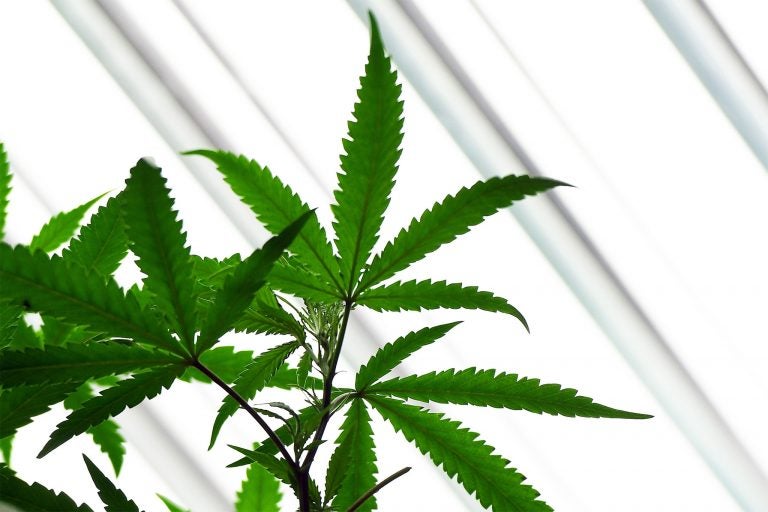ACLU: NJ marijuana arrests jump about 35% over 4 years
Marijuana-related arrests in New Jersey jumped about 35% over a four-year period ending in 2017, according to a report by the American Civil Liberties Union of New Jersey.

Marijuana-related arrests in New Jersey jumped about 35% over a four-year period. (Andy Colwell for Billy Penn)
Marijuana-related arrests in New Jersey jumped about 35% over a four-year period ending in 2017, according to a report released Friday by the American Civil Liberties Union of New Jersey.
The ACLU-NJ published the data — based on FBI crime figures — showing nearly 38,000 arrests for cannabis possession, distribution or both in 2017, up from about 28,000 in 2013.
The publication also indicated that black people are three times as likely to get arrested on marijuana-related charges than white people, the same ratio that the organization reported in a similar earlier report from 2017.
A message seeking an explanation for the uptick was left with the state attorney general.
The ACLU-NJ is advocating recreational marijuana legalization in New Jersey. The main driver of its push, according to executive director Amol Sinha, is the racial aspect of marijuana prohibition.
“The fact that communities of color are disproportionately harmed … has created a civil rights crisis,” Sinha said.
The Democratic leaders of the Legislature and Democratic Gov. Phil Murphy supports legalization. But the effort has stalled among rank-and-file lawmakers.
Advocates, including the ACLU, want the Legislature to take up legalization during the current lame duck session. The alternative is a ballot question, which Democratic Senate President Steve Sweeney has said he would put on the docket for next year.
Sinha said Friday that legislation is better than an election because lawmakers would still have to pass measures to specify recreational legalization even if a ballot question succeeds.
The report looked at recently available data from 2017 and compared it with the last time the ACLU did a similar report in 2017, which used 2013 data.
WHYY is your source for fact-based, in-depth journalism and information. As a nonprofit organization, we rely on financial support from readers like you. Please give today.




